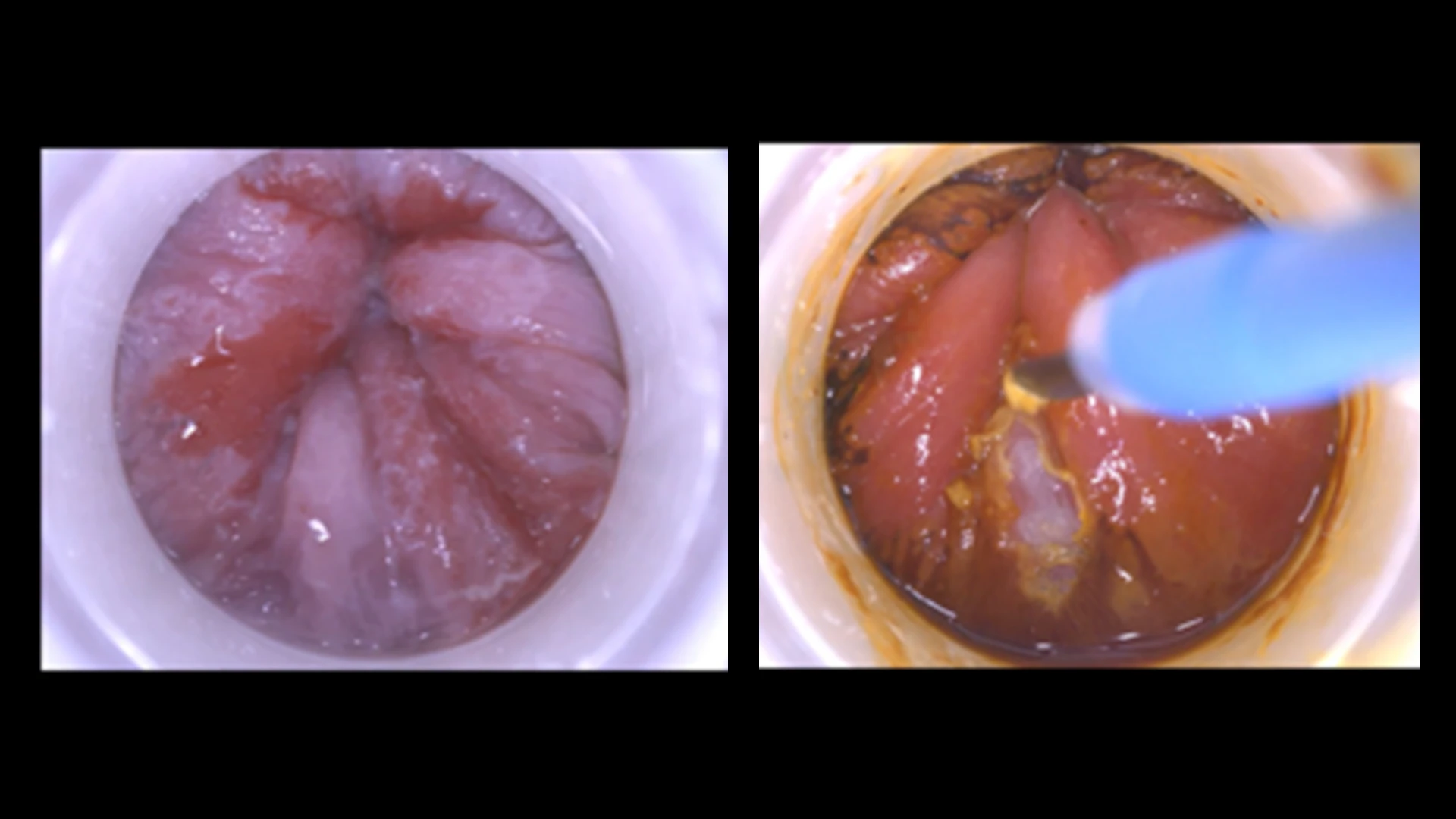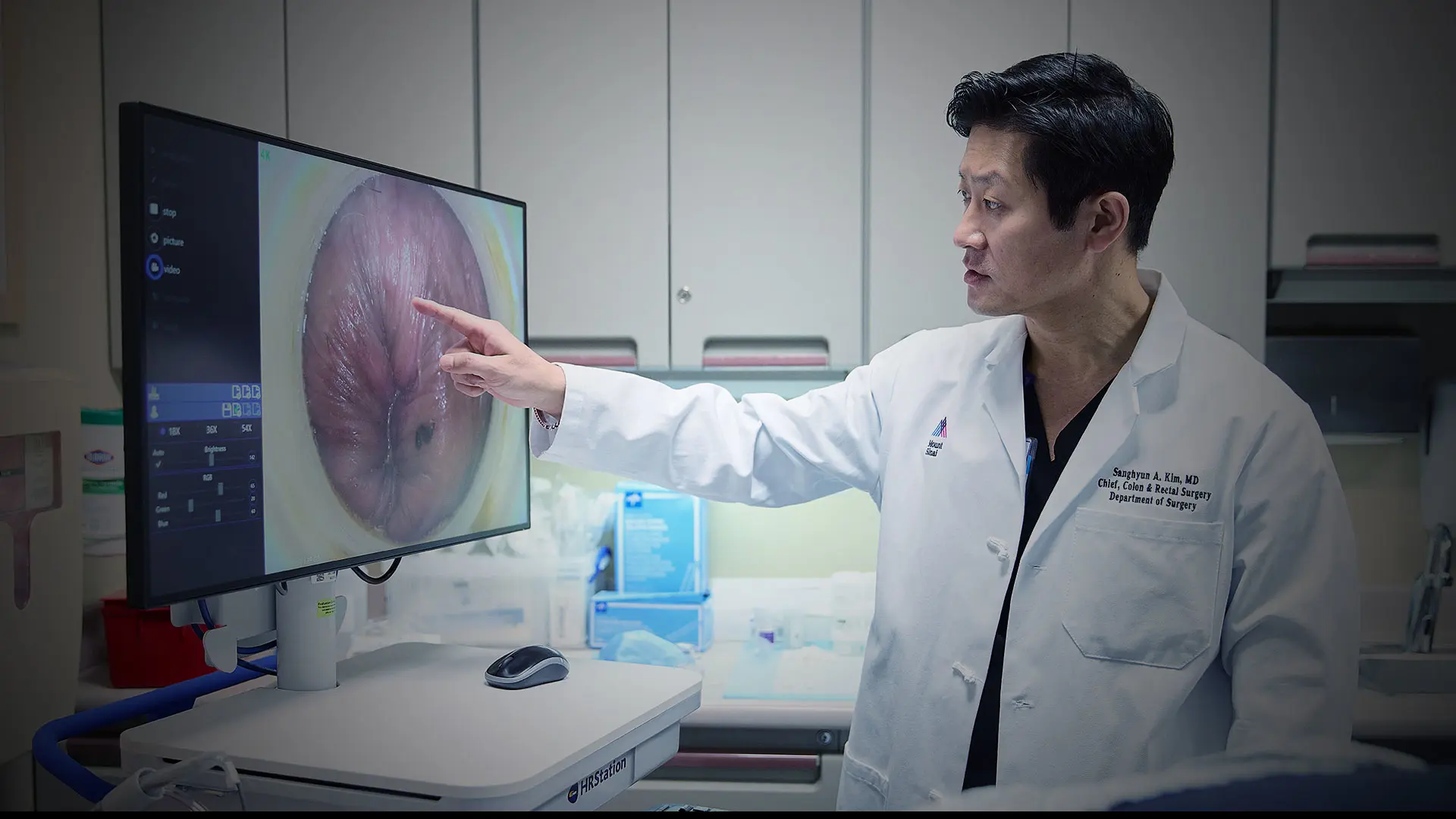Experts at the Icahn School of Medicine at Mount Sinai are paving the way to better screening and intervention to prevent anal cancer. Building on the legacy of landmark research done at Icahn Mount Sinai, Sanghyun A. Kim, MD, Associate Professor of Surgery, is training surgeons nationwide in using high-resolution anoscopy to detect and treat anal dysplasia.
Anal cancer, like cervical cancer, is caused by HPV. Though anal cancer is relatively rare in the United States, the risk is substantially greater for people who have HIV or are otherwise immunocompromised—particularly people who have anal intercourse. “Anal cancer has been overlooked for a long time. But it’s a cancer that can be prevented, and we need to do better,” Dr. Kim says.
Both cervical and anal cancers develop from high-grade squamous intraepithelial lesions that develop as a result of HPV infection. In cervical cancer, Pap tests are a well-established, evidence-based screening tool for detecting and treating precancerous lesions before they become cancerous. But similar evidence for anal cancer has been lacking.
To address that gap in the literature, Stephen Goldstone, MD, Assistant Clinical Professor of Surgery at Icahn Mount Sinai, spearheaded a national multicenter study. The ANCHOR study randomly assigned HIV-positive people with squamous intraepithelial lesions to undergo active monitoring or receive treatment by having the lesions ablated or excised. The rate of progression to anal cancer was 57 percent lower in the treatment group—a finding so significant that the National Cancer Institute halted the study early, noting that failing to treat all participants would be unethical. The results of the trial were published in The New England Journal of Medicine in 2022.
“It was a landmark finding, and since it was published, colorectal surgeons are eager to learn how to use high-resolution anoscopy to screen for these lesions,” Dr. Kim says.
Expanding the Reach of High-Resolution Anoscopy
Just as vaginal Pap tests can detect early cell changes that lead to cervical cancer, anal Pap tests can identify lesions that progress to anal cancer. Dr. Kim has long recommended annual anal Pap tests for men who have sex with men. If the Pap test reports abnormal findings, surgeons typically use a surgical scope and special staining technique to identify suspicious cells for biopsy. But that approach doesn’t always identify precancerous lesions, he says. “Over the last decade, I’ve realized our current approach to screening for anal cancer is inadequate. We’re missing cancers,” he adds.
Dr. Kim partnered with medical device manufacturers to improve a high-resolution anoscopy device that would more effectively identify anal lesions. The new device can view cells at 38x and 59x magnification, compared to 3x or 4x magnification with a surgical scope. “It’s almost as powerful as a microscope,” he says.
High-resolution anoscopy can effectively identify suspicious lesions and lead to less-invasive procedures. Traditionally, suspicious lesions identified in an anal Pap test are biopsied and treated in the operating room across a series of visits. After gaining experience in high-resolution anoscopy, Dr. Kim developed a technique that most patients can tolerate without anesthesia. He now performs the screening and treatment during in-office visits for 86 percent of his patients.

Early anal lesions (precancerous without deep invasion) are identified and treated by burning them off in the office.
Over the last five years, he has performed about 400 high-resolution screening anoscopy procedures and trained two dozen visiting colorectal surgeons in this technique. He also teaches the importance of screening to fellows in colorectal surgery, gastroenterology, and gynecologic oncology. And in August 2023, Dr. Kim and Dr. Goldstone ran a course in New York City, educating 20 colorectal surgeons from across the country about high-resolution anoscopy. It can take time for surgeons to master using the device and deciphering the different staining patterns in anal lesions. But the effort can result in lives saved.
There are still areas of the country where high-resolution anoscopy is hard to access, Dr. Kim says. He hopes that will soon change. Based on the landmark ANCHOR study, the American Cancer Society is updating its guidelines to recommend that immunocompromised patients with an abnormal anal Pap test receive high-resolution anoscopy. “Much of this research has been done in HIV-positive individuals. But anyone who is immunocompromised and has anal intercourse may be at increased risk of anal cancer,” Dr. Kim says.
While HPV vaccines can prevent anal cancer, vaccination rates remain low. “We’re a long way from making this disease better through vaccination,” he says. In the meantime, screening and early intervention are critical.
“Don’t assume you can detect these cancers with a physical examination. With high-resolution anoscopy, we can identify and treat lesions before they’re large enough to be detected with the naked eye or a finger exam—before they turn into cancer,” he says. “Mount Sinai values innovation, and I’m proud that our work is leading to more effective and less-invasive ways of preventing anal cancer.”
Featured

Sanghyun A. Kim, MD
Associate Professor of Surgery
